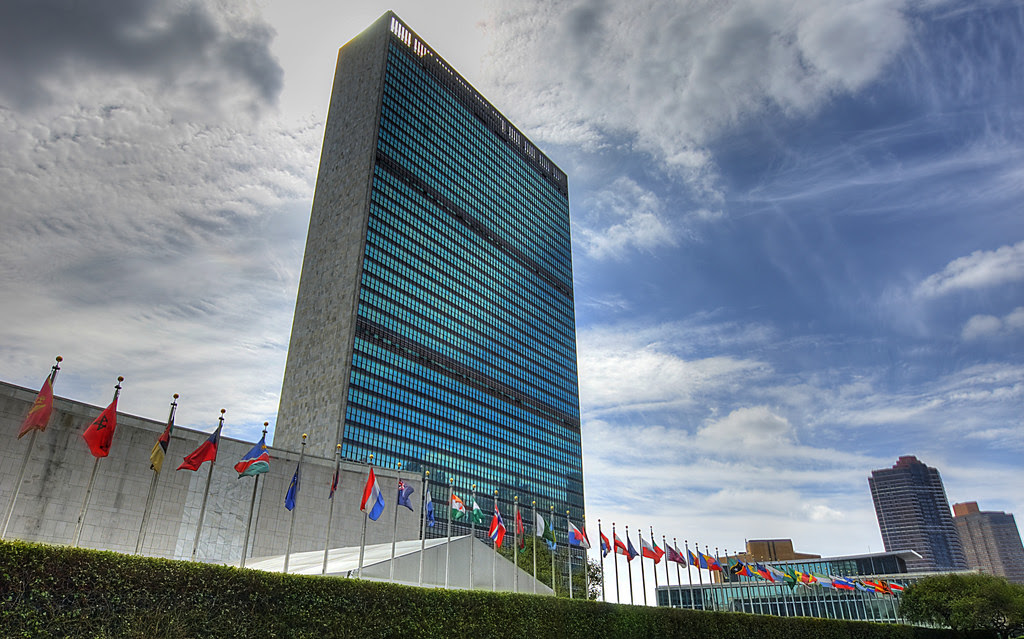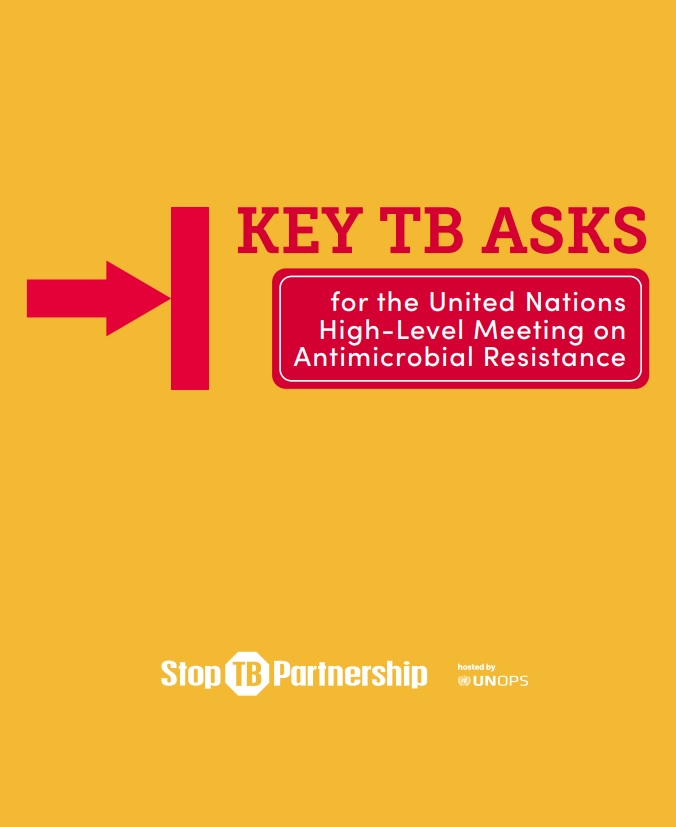 14 May, Geneva, Switzerland: The Stop TB Partnership has launched the Key Asks from TB community for the UN High-Level Meeting (HLM) on Antimicrobial Resistance (AMR) ahead of the UN Multi-stakeholder Hearing on AMR scheduled for Wednesday, 15th May.
14 May, Geneva, Switzerland: The Stop TB Partnership has launched the Key Asks from TB community for the UN High-Level Meeting (HLM) on Antimicrobial Resistance (AMR) ahead of the UN Multi-stakeholder Hearing on AMR scheduled for Wednesday, 15th May.
The Key Asks have been developed through an inclusive process by gathering inputs from a wide range of partners including civil society, affected communities and survivors, researchers, private sector, and academia.
The document is seen as a “living document” in order to allow inclusion of strategic points made during Multi-Stakeholder Hearing as well as inputs from partners. The Stop TB Partnership is calling on all partners to share the Key Asks with their political leaders and to advocate for an ambitious Political Declaration on AMR that includes quantitative and measurable time-bound targets.
Speaking on the launch of the Key Asks, Dr. Lucica Ditiu, Executive Director, Stop TB Partnership said, “We want people and the wider AMR community to own the fact that drug-resistant TB (DR-TB) is an important component of the AMR, and a leading cause of death among anti-microbial resistant infections. With UNHLM on AMR being discussed this year, the TB community cannot afford to stay quiet or silent, and I am really pleased and excited that we came together to develop the TB Key Asks for UNHLM on AMR.”
The Key Asks have six headlines and are highlighted below.
1. Political Commitment
- Commit to include TB as a tracer indicator in global and national AMR strategies, since progress on TB and TB R&D is a critical indicator of progress on AMR and efforts against the development of drug-resistant strains.
2. Financing
- Commit to reach $22 billion in annual funding for the global TB response by 2027, including DR-TB prevention, diagnosis, treatment, care, and real-time surveillance, as well as sustainable financing mechanisms and innovative funding approaches, as agreed by governments commitment in the 2023 UN High-Level Meeting (UNHLM) on TB Political Declaration.
- Commit to shorter, safer and more effective treatment regimens, especially for DR-TB, and the development and roll-out of safe, effective, accessible and affordable TB vaccines for people of all ages.
3. Diagnosis, Treatment and Prevention
- Commit to providing treatment for up to 45 million people with TB between 2023 and 2027, including up to 4.5 million children and up to 1.5 million people with drug-resistant tuberculosis, as agreed in the 2023 UN High-Level Meeting (UNHLM) on TB Political Declaration.
- Commit to prioritize country-level stewardship in providing access to new innovations, including all-oral shorter-duration treatments, social, mental health, and nutritional support, complemented by safety monitoring and management of side effects.
- Advocate for promoting antimicrobial stewardship and uninterrupted, high-quality, and affordable TB medicines, to prevent the emergence and spread of drug-resistant TB strains. Establish comprehensive infection prevention and control measures in all healthcare settings.
4. Community, Rights and Gender
- Advocate and commit resources for an AMR response that is human rights-based, gender transformative, stigma-free, and people-centered to ensure communities, affected people, and key and vulnerable populations are at the center of the AMR response, and ensure resources are allocated to support their engagement in AMR programmes as well as for community-led monitoring activities.
5. Research and Development
- Recognize vaccine development as a critical strategy in addressing AMR, ensure that the regulatory framework provides guidelines and supports streamlined development and authorization of drugs and vaccines against AMR, and commit to supporting R&D on human immunology and newer, AI-driven strategies for tracking AMR and identifying viable vaccine targets for AMR.
6. Health Systems and Accountability
- Recognise the importance of a one health approach in responding to drug resistant TB, zoonotic TB, AMR and climate and the importance of emphasizing TB as part of the one health response.
- Advance AMR accountability, including establishing an Independent Panel on Evidence for Action Against AMR, an annual report by the UN Secretary-General, and ensuring TB is included in these initiatives.
The Stop TB Partnership recently organized a webinar titled “When Mycobacterium tuberculosis no longer responds to antibiotics: Antimicrobial Resistance (AMR) & Drug Resistant TB (DR-TB)" that brought together more than 200 participants to discuss and launch the Key Asks from TB community for the UNHLM on AMR and feature a discussion on the critical need for TB to be prioritized in the global AMR agenda. The Multi-stakeholder Hearing on AMR taking place on 15th May will be livestreamed on the UN TV website as well on Stop TB Partnership Facebook page.

